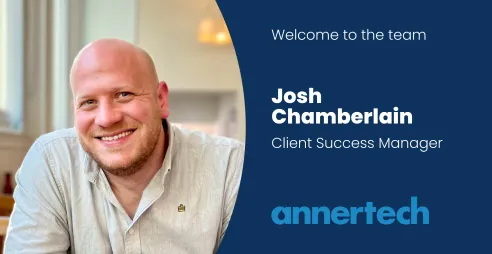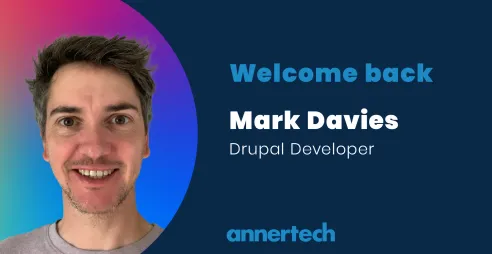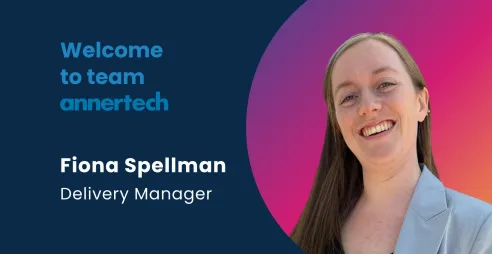Meet the Team: Head of Infrastructure Daniel Pickering
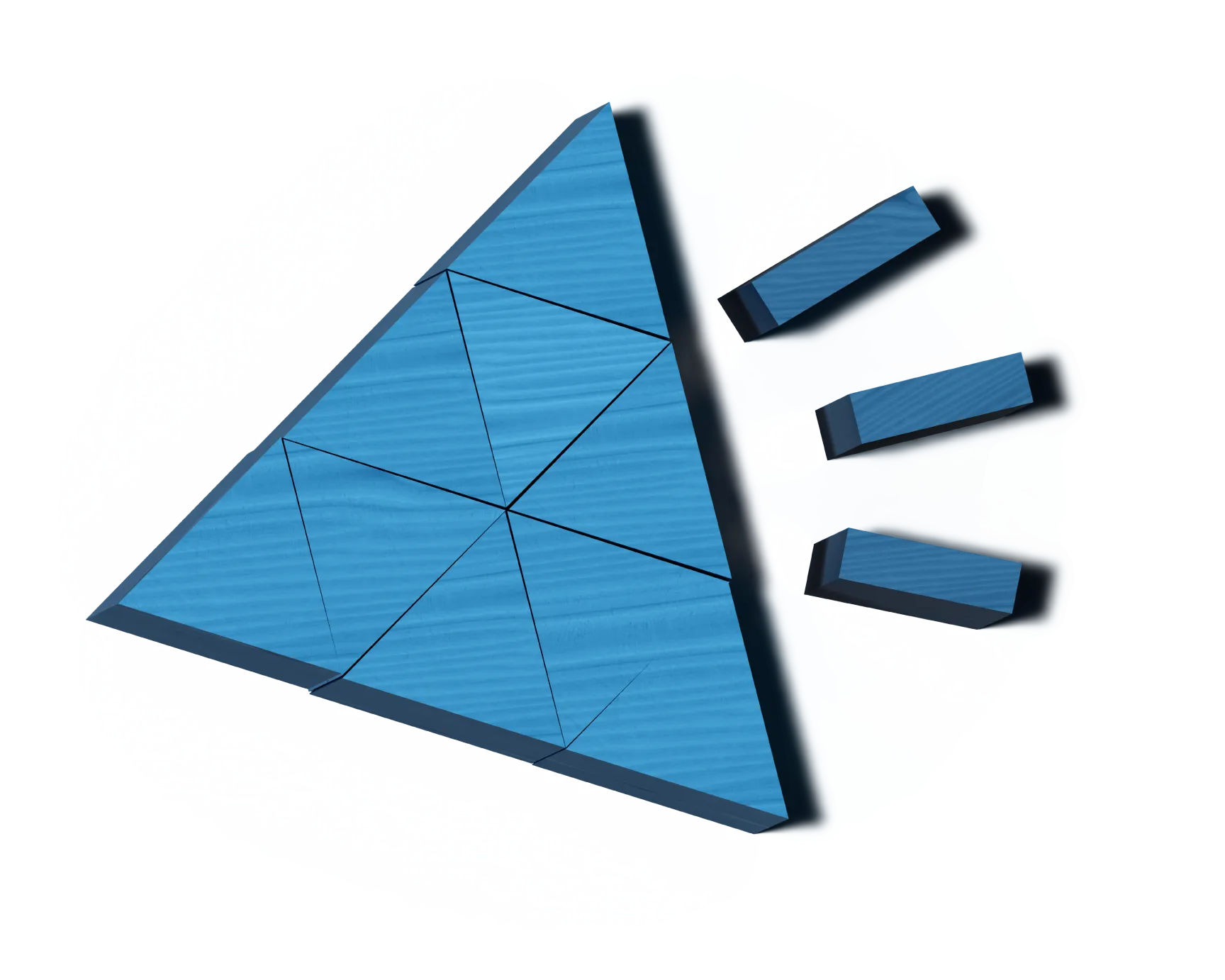
Annertech’s head of infrastructure has the (hopefully) unseen task of keeping things running smoothly behind the scenes.
Daniel Pickering is the person behind the smooth running of Annertech's infrastructure. If he's doing his job properly, ‘people just press buttons and things work‘. He chats about his love for open-source software, easy-to-understand documentation, and his former life as a photographer.
Alison Visser: What do you do at Annertech?
Daniel Pickering: I make sure everything works for everyone. So when people try to spin up a site they just run a command and it works. That’s the ideal. But I’m also a real Mr Fix It. If the servers go down, once my colleagues have exhausted all normal options, it gets passed to me to contact the provider or fix it. In general, I make sure that things run smoothly for other people. I try to keep everything standardised and organised so people just press buttons and things work, and they don’t have to think about things too much.
Alison: What does a typical work day look like?
Daniel: For me, a typical work day starts the night before, planning what I’m going to do, and then waking up and something happens and I don’t do any of it. It’s hard to say what a typical day is going to look like because some of the changes come from clients, some come from sites going live. Plus it’s keeping on top of client requests to an extent and sorting out server validation – you can’t always predict these things.
But what is standard is that every day we have a 10am morning meeting where we assign tasks based on client priorities.
Alison: You make it sound like fun
Daniel: There are some tense moments – especially when you’re working with infrastructure and server handovers. People want to know that it’s going to plan and everything’s working, and if it isn’t then they want to know why it isn’t.
I’m very keen on keeping the clients informed – you need to let them know where you’re at because otherwise they’re just going to get stressed and that’s not good for anyone.
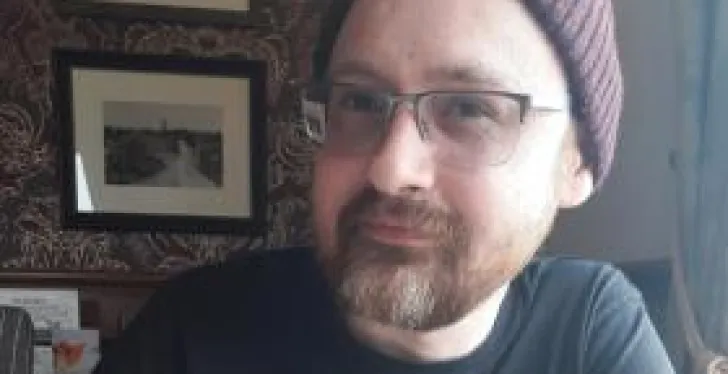
Daniel Pickering, Annertech's Head of Infrastructure.
Alison: How did you get into this line of work?
Daniel: The honest answer is through being tight, I guess. Everyone wants you to pay for something and at the end of the month you look at the bill, and all these services add up.
I initially got into the industry to make my own website. I liked making websites and people started offering me money to make their websites, and it kind of went from there. I always refused to use third parties for these “bolt on” things.
That’s how I got into infrastructure – if you don’t want to pay for a service then you have to manage your own server and dealing with third parties can be challenging.
Alison: You have two bachelor’s degrees – one in computer science from the University of Sheffield and the other in business network engineering from Sheffield Hallam University.
Daniel: Yes, I did business network engineering, which turned out to be a bad move so I went back and did a degree in computer science.
Alison: What is business network engineering?
Daniel: It’s an engineering degree and management training. It hasn’t really been that useful. I had one job in this area and it just wasn’t for me. I think the only useful thing I got out of the degree was the part about making your own tech, like motherboards, motion sensors. It was interesting making some minor home automation tools.
Alison: What do you love most about your job?
Daniel: It’s great that we work with open-source software and give back the vast majority of my contributions. It’s brilliant that we have so many nice clients. I’ve been with Annertech for five-and-a-half years now, and all the clients have been pleasant to deal with. That’s never happened to me before.
We also have great co-workers. I like to try to be supportive – and some places are awful to work. I once worked with six other developers and I asked something stupid in a group chat and one DMd me and told me I was a moron.
The way I see it, if I don’t know something, nobody’s going to benefit from me sitting here, doing nothing all day long, so I might as well cut to the chase and throw it out there. Surely someone will know and they will help me? Anyway, another developer answered the question and helped me fix it.
A week later the guy who called me a moron sent me a private message and asked if I would mind asking about something else in the public chat. Turns out he’d been stuck for a week and was too embarrassed to ask for help.
Some people get intimidated by putting themselves forward – in some places there’s a scrutiny that goes along with it: you shouldn’t ask questions like that; you should know what you’re doing. If I don’t know something, I’ll ask for help.
We get new people joining us all the time, and it’s nice to be able to support people; to encourage people to ask questions rather than to suffer in silence. And helping someone is very satisfying.
Knowledge should be open-sourced. I try to encourage people to write documentation and to maintain modules on drupal.org. Anyone should be able to read the Drupal documentation. We should all understand it. It should be simple, easy to read, easy to follow.
If something is breaking then we need a solution and we need to be able to fix it quickly. We’d save so much time if documentation was simple – a solution is needed and we can find it and execute it easily.
Alison: What do you like least about your job?
Daniel: I don’t like mornings. Could we all move everything to later on in the day? I’m just kidding. What I don’t like is that I plan my day the night before, and then I log on in the morning and everything changes, and I get roped into fixing things I hadn’t accounted for. But having said that, I like helping people. There's satisfaction in fixing something; everyone seems to appreciate the effort.
Alison: What do you do when you’re not working?
Daniel: I like wildlife. I live in Yorkshire, in northern England, next to a protected wood. It's nice to be next to nature, and I enjoy going on walks. I also enjoy chilling at the pub, going to metal concerts and strategy games. I go to as many work-related events as I can. It’s good to network. I used to call it therapy because we’d all get together and complain about things. But I find I complain less and less. I don’t know if that’s progress or not. But it’s good to keep in touch with people and see what everyone’s using and how they’re doing things; potentially get some advice and avoid other people’s downfalls. I’m a big fan of learning from history – let other people make mistakes, so I can avoid them.
Alison: Do you have anything quirky you’d like to share with us?
Daniel: I worked as a photographer for many years. I used to photograph everything from weddings to pets to ceremonies. At one point I used to photograph British citizenship ceremonies.
Weddings were the best though – they’re such fun to photograph. Although I was once taken to court by a woman who was upset because her wedding pictures were “dark”. The photos were fine, but the wedding was at 5pm in November so it wasn’t exactly sunny. The judge pretty much laughed it out of court.
I’ve had some crazy experiences. My friends and I keep saying I should write a memoir – The Secret Life of Photographers. Maybe when I retire…

